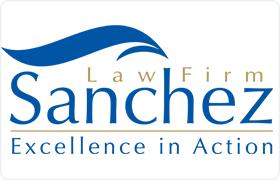Fort Bend County, TX Credit & Debt Lawyers
Sponsored Law Firm
-
 x
x

Click For More Info:
-
Sanchez Law Firm
150 W. Parker Rd. 3rd Floor Houston, TX 77076» view mapReal Estate Excellence In Action
We advocate for our clients in and out of court. When you and the system meet head on, you need an attorney who is experienced, credible, and active.
800-785-3351
John Robert Jones
Bankruptcy & Debt, Credit & Debt, Intellectual Property, Bankruptcy
Status: In Good Standing Licensed: 34 Years
William Madison Colgin
Environmental Law Other, Insurance, Banking & Finance, Credit & Debt, Personal Injury
Status: In Good Standing Licensed: 28 Years
Shawn Christopher Johnston
Litigation, Family Law, Business & Trade, Credit & Debt
Status: In Good Standing Licensed: 10 Years
Stephanie J. Stigant
Commercial Real Estate, Wills, Business & Trade, Credit & Debt
Status: In Good Standing Licensed: 13 Years
Faisal R. Vellani
Health Care Other, Employee Rights, Banking & Finance, Credit & Debt
Status: In Good Standing Licensed: 14 Years
Salmaan Ali Momin
International Other, Elder Law, Credit & Debt, Personal Injury
Status: In Good Standing Licensed: 14 Years
Matthew Fraser Scholes
Commercial Real Estate, Litigation, Family Law, Credit & Debt
Status: In Good Standing Licensed: 17 Years
Robert Daniel Franks
Construction, Litigation, Family Law, Credit & Debt
Status: In Good Standing Licensed: 20 Years
Betsy Lynn Grubbs
Construction, Litigation, Business & Trade, Credit & Debt
Status: In Good Standing Licensed: 23 Years
Edward W. Gaskill
Juvenile Law, Oil & Gas, Family Law, Credit & Debt
Status: In Good Standing Licensed: 32 Years
 Benjamin Sanchez Houston, TX
Benjamin Sanchez Houston, TX Practice AreasExpertise
Practice AreasExpertise
